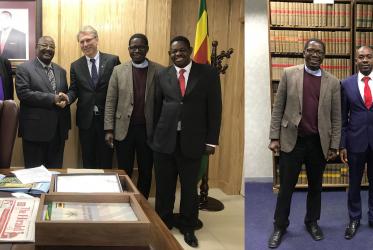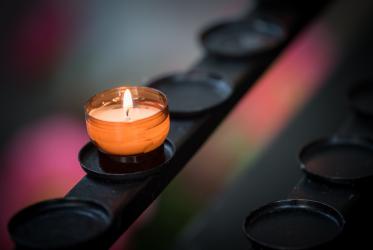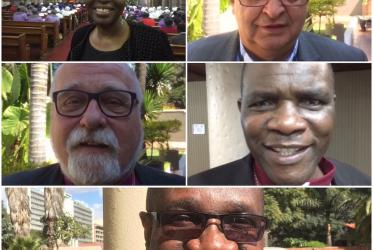Displaying 1 - 19 of 19
21 December 2023
Young Africans are eager to grapple with challenges
09 January 2020
Rev. Kenneth Mtata reflects on journey of transition in Zimbabwe
20 September 2018
#WCC70: Fellowship of women and men – with ups and downs
17 August 2018
#WCC70: Churches as “freedom agents”
12 February 2018
WCC Executive Committee comments on situation in Zimbabwe
22 November 2017
Voices from a solidarity visit to Zimbabwe
25 May 2017
New Executive Committee members elected in Trondheim
28 June 2016
Person with disability shares reflection on AIDS conference
10 December 2015












